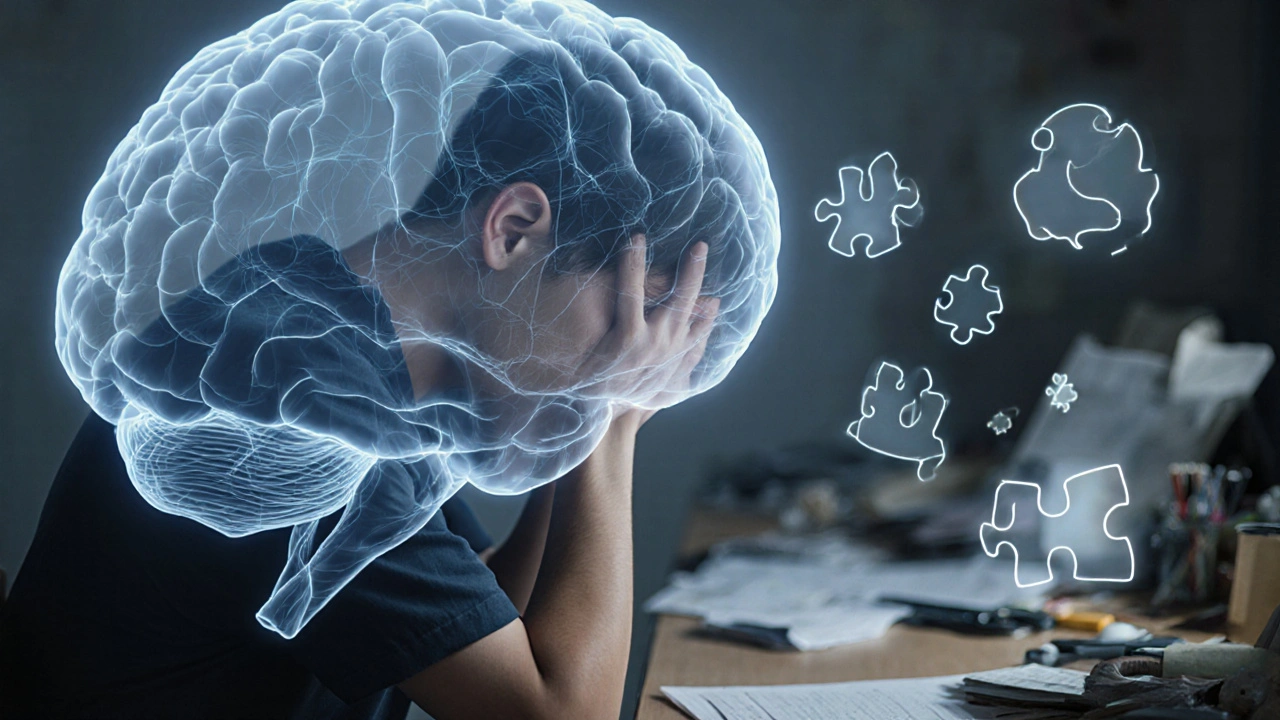Vitamin Deficiency Mood Disorder: What You Need to Know
When dealing with vitamin deficiency mood disorder, a condition where low levels of essential vitamins trigger depressive or anxiety‑related symptoms. Also known as nutritional mood disorder, it often overlaps with clinical depression but has distinct nutritional roots. This isn’t a rare curiosity; research shows that up to 30 % of people with persistent low mood have a measurable vitamin shortfall. Understanding the link helps you move from vague guesswork to targeted action.
Key Nutrients Behind Mood Shifts
Two vitamins dominate the conversation. Vitamin D helps regulate calcium, supports immune health, and influences brain pathways that control mood. Its deficiency is linked to seasonal affective patterns and a higher risk of major depressive episodes. Meanwhile, Vitamin B12 is essential for nerve myelination and the synthesis of neurotransmitters. Low B12 levels can produce fatigue, irritability, and even psychosis in extreme cases. Both nutrients act as building blocks for serotonin the brain’s “feel‑good” chemical that modulates mood, appetite, and sleep. When vitamin supplies dwindle, serotonin production stalls, creating a biological cascade that fuels mood swings.
These relationships form a clear semantic chain: vitamin deficiency mood disorder encompasses vitamin D deficiency and vitamin B12 deficiency; these deficiencies influence serotonin levels, which in turn affect depression. Recognizing this chain lets you target the root cause rather than just treating the symptoms.
Beyond the three core entities, lifestyle factors act as modifiers. Regular sunlight exposure boosts Vitamin D synthesis, while animal‑based foods like meat, eggs, and dairy deliver B12. Plant‑based eaters should consider fortified foods or supplements. Alcohol, smoking, and certain medications can impair absorption, making routine blood testing a smart move for anyone with persistent low mood.
In practice, fixing a vitamin deficiency mood disorder starts with three steps: 1) test blood levels of Vitamin D, B12, and related markers; 2) correct gaps with diet, safe sun exposure, or high‑quality supplements; 3) monitor mood changes alongside laboratory results. Many clinicians pair nutritional rehabilitation with standard antidepressants, noting faster remission rates and fewer side‑effects.
Now that you see how vitamins, neurotransmitters, and mood intertwine, the articles below will give you deeper dives into specific medications, health conditions, and practical tips that often appear alongside nutritional concerns. Whether you’re looking for guidance on managing depression, choosing the right supplement, or understanding how other health issues interact with vitamin status, the collection offers actionable insights you can apply right away.

How Vitamin Deficiencies Influence Mood Disorders
Explore how vitamin D, B12, folate, and iron deficiencies affect depression and anxiety, learn to spot symptoms, get testing tips, and discover diet and supplement strategies.
